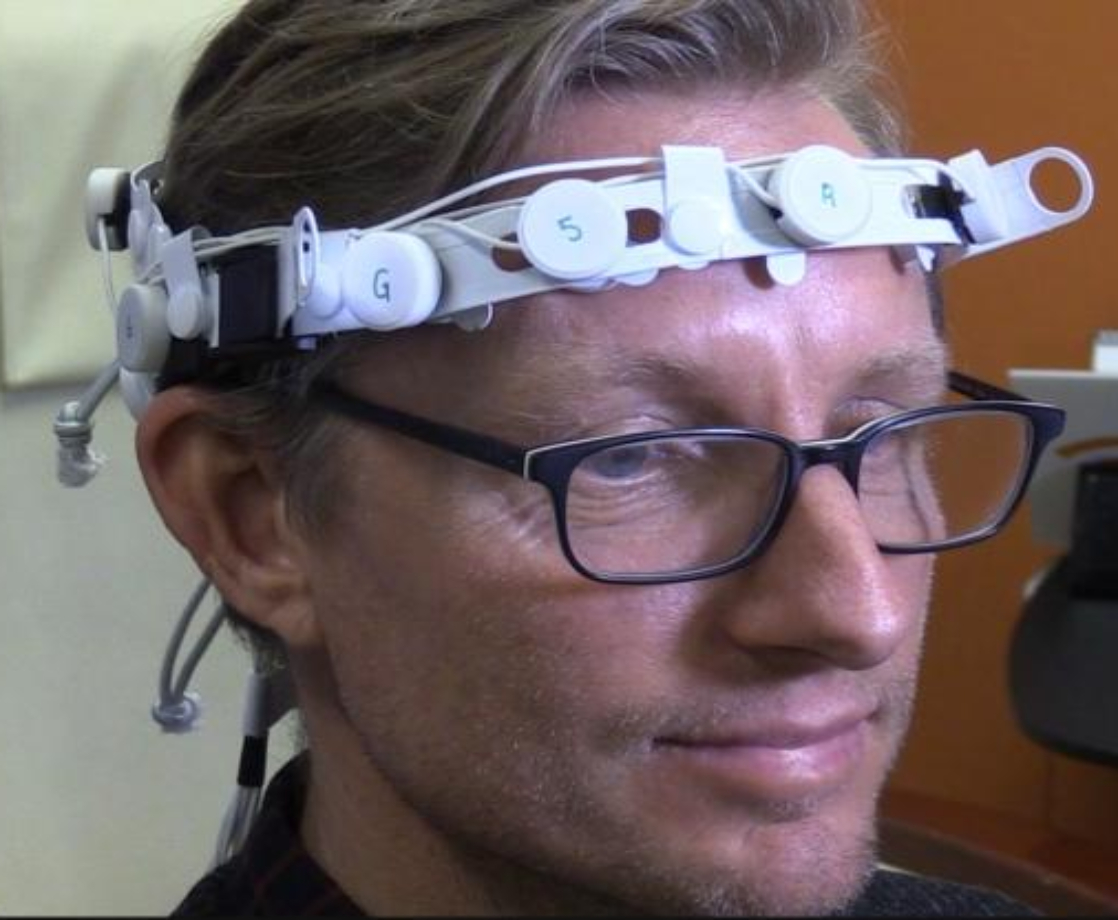Image via
Detecting if people are stoned is now starting to look a lot less like 1984 and a lot more like Minority Report.
Zentrela, an Ontario-based company, announced that its “The Cognalyzer” device can tell if someone is high on marijuana with a quick EEG scan. The portable device sits on a person’s head like a crown of circuits, then runs the individual’s brain waves through a computer for analysis.
“Within five minutes employers and law enforcement will have a result of the mental state of their subjects,” the company’s founder and CEO, Israel Gasperin, told CBC News.
And, since The Cognalyzer isn’t looking for THC, the company claims it won’t produce false positives for intoxication like saliva, urine, blood, and sweat tests can.
“Employers are having the same issue [as police] in administering random drug tests,” Gasperin told CBC News. “It’s limited evidence, and their employees know it’s limited evidence, and they are legally challenging any decision taken, and it’s costing thousands of dollars to employers.”
“Now they will have that confirmatory evidence to eliminate false accusations and strengthen their safety practices to mitigate the risk of impairment,” he continued.
THC, the intoxicating compound in marijuana, is fat-soluble, meaning it doesn’t dissolve in water, but it does dissolve in fats and oils. When someone consumes cannabis, THC and its metabolites get stuck in the person’s fat cells for days, weeks, or months at a time. That means when someone is tested for weed impairment through chemical tests, they can test positive for THC long after they were actually stoned. In other words, chemical tests can’t tell if someone’s currently high; they can only tell if someone got high sometime in the past few days, weeks, or months.
Right now, The Cognalyzer is being tested in the UK as British police and employers also wrestle with legal complications caused by pot prohibition’s conflicts with the nation’s new medical marijuana program. Additionally, Ontario’s government gave Zentrela a $1 million grant to further develop the technology.
Lately, scientists are busy with finding new, non-invasive ways to determine drug impairment since some people can easily beat roadside sobriety tests. You know, the tests where the cops have you look up, touch your nose, recite the alphabet backwards, then perform a handstand — on one hand.
In February, AI specialists at IBM announced they could detect if someone was rolling on MDMA, otherwise known as ecstasy or molly, by analyzing speech patterns alone. Other scientists are trying to find ways to apply this same speech analyzing technology to detecting weed intoxication, as well, so The Cognalyzer may have some competition soon.











